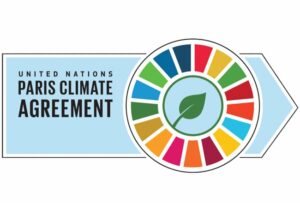
There are now numerous environmental movements actively working to address the waste problem. For instance, the act of picking up trash together, recycling plastic, and so on. However, in Indonesia, there haven’t been many serious movements or efforts to address the e-waste problem. It’s unfortunate, because electronic waste is one of the types of waste that is constantly increasing throughout the world.
According to the United Nations’ annual report Global E-Waste Monitor 2020, the amount of electronic waste in the world reached 53 million tons in 2019. This figure is expected to continue rising, reaching 74 million tons in 2030 and 120 million tons in 2050. Meanwhile, according to data from the Ministry of Environment and Forestry, the amount of electronic waste in Indonesia reaches 2 million tons this year.
The growing pile of electronic waste is strongly linked to the growing number of electronic devices we use on a daily basis. Let’s count how many electronic items you use on a daily basis, such as cellphones, laptops, refrigerators, TVs, computers, and cables. Then what do you generally do with these devices when they are damaged or you are no longer interested in using them? Of course, they’re unlikely to vanish on their own, and recycling them would be tricky. So, what are actually the dangers of e-waste to the environment and how should we deal with it?
The Dangers of Electronic Waste
Electronic waste is all used electronic goods that are no longer used by the owner. These electronic items contain various kinds of hazardous and toxic materials (B3), such as mercury, lithium, and cadmium. These components, when left to settle in landfills for a long period, can pose a threat to the air, water, soil, and human health. Over time, the hazardous components of a pile of electronic waste that are not managed properly can seep into the ground causing the soil and water in it to become contaminated. As a result, the fertility of plants and the health of animals that rely on the area’s soil and water may be harmed.

Additionally, there is sometimes an act of indiscriminately burning electronic waste. This action is also extremely harmful because it can release a large number of toxic compounds into the air, causing health problems for individuals who breathe it. Various researches have looked into the consequences of chemical compounds found in electronic waste on human health. According to these researches, electronic waste can cause a variety of diseases, including liver, heart, and spleen damage, as well as cancer.
What are the Best Ways to Dispose of Electronic Waste?
We cannot handle electronic waste carelessly since it is harmful. In Indonesia, electronic waste management is governed by laws and government regulations, such as Government Regulation (PP) Number 101 of 2014 on Hazardous and Toxic Waste Management (B3). According to this regulation, the management of electronic waste, from collection to transportation, sorting, recycling, and destruction, can only be carried out by parties who have been granted official permits. They must also follow defined standards and processes when doing so.

However, this does not mean that we cannot do anything to help solve this problem. In fact, there are several things we can do. First, we can learn to use electronic items more wisely. Consider whether you actually need a new gadget before purchasing it. Try to choose gadgets that will last a long time so that you won’t have to replace them too often.
Then if you have any electrical goods that are no longer in use in your home, don’t just dump them out in public garbage. You can collect it first, together with electronic waste from other members of your household. Later, you can dispose of the electronic waste with a party that can handle it, such as your local government environmental agencies. E-waste dropboxes in the form of electronic trash collecting boxes are usually available at various locations throughout the city. Furthermore, if you have a lot of e-waste, there are now services from government agencies, companies, and social communities that can help you take the e-waste right at home.

Furthermore, you can also start a movement that aims to educate more people about the dangers of electronics and how to deal with them. You can start by inviting the people closest to you to collect their electronic waste to be deposited together. By doing this, you have done something very important in an effort to preserve the environment. If you want to improve the effectiveness of your movement, you may learn more about becoming an environmental diplomat by attending the EcoNusa Foundation’s School of Eco Diplomacy. Through this program, you will be equipped with various kinds of knowledge and skills that are important for an environmental diplomat to carry out the actions. Keep an eye out for the upcoming Eco Diplomacy School!











